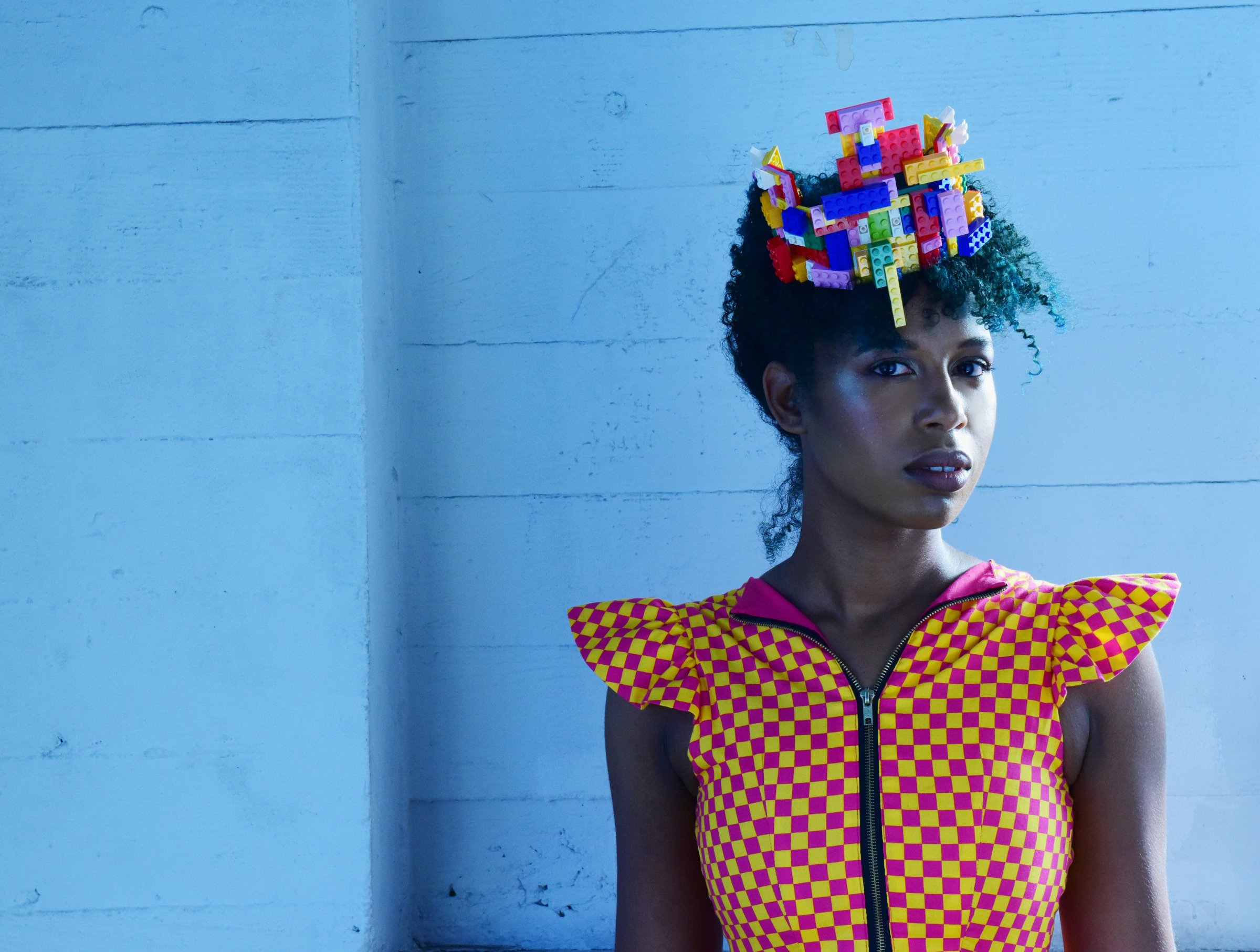
To listen to DeQn Sue — pronounced “deacon,” like a minister — is to get pulled into a world of drama and colorful noise, pop and empowerment. You can trace that alchemical mix of theater and soul back to her roots: the Alabama-born, California-based singer-songwriter was raised as a “church kid,” the daughter of an actor on the 70s TV show S.W.A.T. and a mom who was “like a female version of Joe Jackson,” she says, and who started her singing in church when she was practically still a toddler. Even the name is a mash-up homage to both of her parents. Now, friends call DeQn Sue a “queen of quirk.” That quirk has paid off: she’s so far popped up on NPR’s Tiny Desk Concert series, and had a track featured on Netflix’s Orange Is the New Black.
On “Shook Up,” a new single premiering on TIME from her upcoming album Juggernaut, due in September, those two forces join in an addictive alt-pop track. Don’t call it a bop, though: this one’s for snapping you out of a funk, pairing her rich, expressive voice with a modern take on orchestral production.
“I listen to it myself when I’m having a bad day. I’m like, ‘Get up. Stop. You can sit here and feel bad for yourself for a second, but you need to keep fighting,'” she explained to TIME. “For anyone who’s upset, if someone is treating them badly, trying to take their dream away, or their purpose, I hope they can listen to ‘Shook Up’ and shake themselves out of it and keep going.”
Below, DeQn Sue talks about how the song came to be and her sources of inspiration as an artist.
TIME: What’s the back story of “Shook Up?”
DeQn Sue: I’ve had people that have been mean or unkind to me, and have thought that they were gonna crush me, or obliterate me, or mash my spirit. “Shook Up” is the clap back. You think you had me, but I’m here, and I’m back, and I’m still fighting, and I’m gonna keep fighting. I wrote it before [the election]. Not to get political, but now in retrospect it makes so much sense. Here and now, it speaks to me in a completely different way — as an American, as a black woman, as a black American, as a human being. We’re in a different kind of space than we were a year ago, with a different president and different circumstances, but I think we are a resilient people. We just have to get up and keep fighting.
How would you describe your sound as an artist?
Honestly, I hate to be one of those artists who’s like, I don’t want to be in a box. There’s always some kind of box. I got interviewed by AfroPunk, and they dubbed me theatrical, alternative pop. I just stuck with it. I just love what I do, and it’s quirky and it’s very theatrical. There’s a lot of big band stuff and sparse production sometimes. I’m pretty moody, so [producer] Kelvin [Wooten]’s really good for that: he understands what I’m trying to say and where I’m trying to go.
Who are your biggest musical influences?
I’m really more into visual art. I could say that David Bowie, obviously, is amazing. I’m grateful for the greats, but I don’t think I idolize a specific person. I’m more drawn to Basquiat or Keith Haring or graffiti on a wall on the street. One of the artists I love is Kehinde Wiley; he paints these huge murals of gangster guys on floral backgrounds. It’s insane. I see that, and it evokes emotion in me to be creative and write whatever’s in my heart.
More Must-Reads from TIME
- Why Biden Dropped Out
- Ukraine’s Plan to Survive Trump
- The Rise of a New Kind of Parenting Guru
- The Chaos and Commotion of the RNC in Photos
- Why We All Have a Stake in Twisters’ Success
- 8 Eating Habits That Actually Improve Your Sleep
- Welcome to the Noah Lyles Olympics
- Get Our Paris Olympics Newsletter in Your Inbox
Write to Raisa Bruner at raisa.bruner@time.com